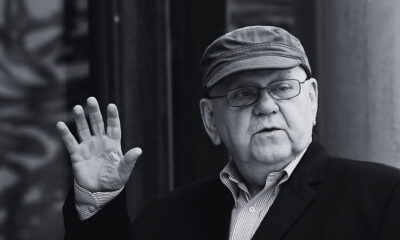Európai Unió
KI HORDTA A SÖRT? Katasztrofálisra sikeredett a szerbiai-koszovói párbeszéd újabb fordulója, amely személyeskedésektől sem volt mentes

Nem sikerült előrelépést elérni a Szerbia és Koszovó közötti párbeszéd újabb fordulóján, ami igencsak diplomatikus megfogalmazás azzal kapcsolatban, ami Brüsszelben történt. A találkozó után a szerb elnök úgy nyilatkozott, hogy a koszovói miniszterelnökkel arról sem lehet tárgyalni, hogy milyen nap van ma, a pristinai kormány vezetője ugyanakkor azt hangoztatta, hogy Szerbiának szembesülnie kell a múltjával.
Ki hordta a sört?
A BALK értesülései szerint a koszovói-szerbiai párbeszéd újabb fordulója “katasztrofálisra sikeredett”, és a személyeskedésektől sem volt mentes.
Albin Kurti koszovói miniszterelnök a találkozó után úgy nyilatkozott, hogy Szerbiának szembesülnie kell a múlttal.
Ez a tárgyalóasztalnál abban is megnyilvánult, hogy a koszovói miniszterelnök ordítozott a szerb elnökkel, akinek a szemére vetette, hogy a kilencvenes években “ő hordta a sört (Vojislav) Šešeljnek”, a Szerb Radikális Párt elnökének , aki a pártban a “főnöke” volt.
Albán források szerint Kurti úgy fogalmazott, hogy a szerb elnök Slobodan Milošević “népirtó rendszerének” minisztre volt, és hozzátette, hogy “a bűnözői múlt megtagadása és Koszovó függetlenségének elismerése szorosan összefügg”.
A szerb elnök a találkozót követően ugyanakkor azt mondta, hogy “irracionális emberekkel” nem lehet dűlőre jutni, és már abban sem biztos, hogy ez “valakinek az elmebaja”, vagy a választási kampány része.
Aleksandar Vučić arra figyelmeztetett, hogy a hatalomért folyó harcban “egyesek felelőtlensége miatt elveszíthetik a békét.
I hosted a high-level meeting of the EU-facilitated Serbia – Kosovo Dialogue today. The Dialogue is key to advance on the European agenda for both Kosovo and Serbia, and important for the stability and economic progress of the Western Balkans region. https://t.co/C16GR1yPcA pic.twitter.com/R8rZ4HNK3h
— Josep Borrell Fontelles (@JosepBorrellF) July 19, 2021
Semmit sem írtak alá
Albin Kurti koszovói miniszterelnök közölte, hogy a szerb elnök anélkül utasította el a Koszovó által előterjesztett hat pontos béketerv aláírását – amelynek célja az újabb katonai konfliktus, az ellenségeskedés és az erőszak megakadályozása “a két ország között” – hogy azt egyáltalán elolvasta volna.
A békeszerződés ugyan nem szólít fel direkt Koszovó függetlenségének elismerésére, viszont a második pont kimondja az egymás közötti határok sérthetetlenségét, és felszólítja az érintetteket (Szerbia és Koszovó), hogy tartózkodjanak a másik területének, vagy a terület egy részének megszállásától, annektálásától vagy ellenőrzésétől.
A találkozó után Albin Kurti közleményt adott ki, amelyben a kudarcáért a szerbekre hárította a felelősséget, akik megfogalmazása szerint mindaddig nem arról tesznek tanúbizonyságot, hogy érdekeltek a párbeszédben, a megállapodásban, a békében és a emgbékélésben “a két ország között”, amíg nem hajlandók szembesülni a múlttal, és nem mondanak le az agresszióról.
For as long as Serbia refuses to face the past and agree on non-aggression, it shows that it is not interested in dialogue and agreement, nor in peace and reconciliation among our countries. pic.twitter.com/4vivuhnFnZ
— Albin Kurti (@albinkurti) July 19, 2021
Vučić ugyanakkor azt mondta, hogy semmiben sem tudtak megegyezni, például az eltüntek felkutatásával kapcsolatos uniós javaslatokban sem, és azt is megjegyzete, hogy a legutóbbi brüsszeli talalákkozó esetében azt hitte, hogy rosszabb már nem lesz, de most úgy látja, hogy tévedett.
Az egyetlen eredmény, hogy a párbeszéd nem szakadt meg, mivel a felek megállapodtak abban, hogy főtárgyalóik havonta tartanak megbeszéléseket Brüsszelben az Európai Unió támogatásával az aktuális kérdések megoldása, és adott esetben a magas szintű találkozók előkészítése céljából.
Ezenk kívül Vučić és Kurti a tervek szerint szeptemberben újra találkozik Brüsszelben, a kérdés csak az, hogy most ki viszi a sört.
-

 Szerbia7 nap telt el azóta
Szerbia7 nap telt el azótaVučić 2035-ig atomerőművet építene, két hónapon belül pedig Rafale-okat vásárolna
-

 Szerbia4 nap telt el azóta
Szerbia4 nap telt el azótaSzerbiában máris kezdeményezik az atomtilalmi törvény eltörlését
-

 B A Balkanac5 nap telt el azóta
B A Balkanac5 nap telt el azótaA papa szolgálati útra ment (röpke vizit Vlagyimir Putyinnál)
-

 Szerbia6 nap telt el azóta
Szerbia6 nap telt el azótaTennessee-ben bevezetnék a halálbüntetést a gyermekek elleni nemi erőszak miatt




























































